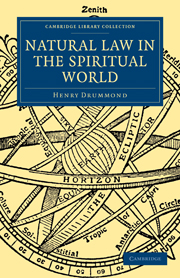Summary
“What could be easier than to form a catena, of the most philosophical defenders of Christianity, who have exhausted language in declaring the importance of the unassisted intellect? Comte has not more explicitly enounced the incapacity of man to deal with the Absolute and the Infinite than the whole series of orthodox writers. Trust your reason, we have been told till we are tired of the phrase, and you will become Atheists or Agnostics, We take you at your word; we become Agnostics.”
Leslie Stephen.“To be carnally minded is Death.”
—Paul.“I do not wonder at what men suffer, but I wonder often at what they lose.”
—Ruskin.“Death,” wrote Faber, “is an unsurveyed land, an unarranged Science.” Poetry draws near Death only to hover over it for a moment and withdraw in terror. History knows it simply as a universal fact. Philosophy finds it among the mysteries of being, the one great mystery of being not. All contributions to this dread theme are marked by an essential vagueness, and every avenue of approach seems darkened by impenetrable shadow.
But modern Biology has found it part of its work to push its way into this silent land, and at last the world is confronted with a scientific treatment of Death. Not that much is added to the old conception, or much taken from it.
- Type
- Chapter
- Information
- Natural Law in the Spiritual World , pp. 141 - 174Publisher: Cambridge University PressPrint publication year: 2009First published in: 1883

